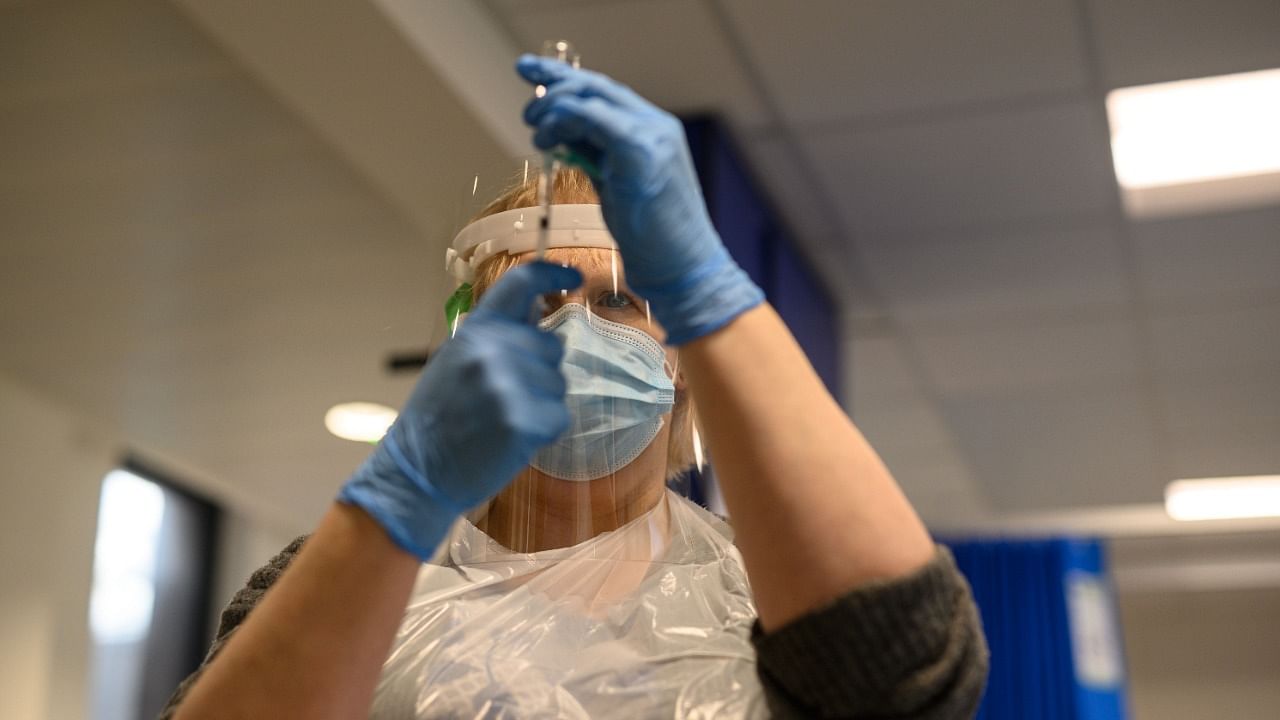
The UK reached the one-year mark this weekend of the first confirmed Covid-19 patients being treated by the state-funded National Health Service (NHS) with Prime Minister Boris Johnson issuing an open letter in praise of the collective efforts of the nation through the coronavirus pandemic lockdown.
“While the past 12 months have been tough for all of us, the demands of this pandemic have also brought out the very best in a great many people,” Johnson said.
“And I’m particularly in awe of the way the parents, carers and guardians of children have risen to the unique challenges with which you have been faced,” he said.
NHS England chief executive Sir Simon Stevens paid a visit to the Royal Victoria Infirmary in Newcastle upon Tyne, north-east England, where the first two confirmed Covid patients were cared for.
Since then, hospitals have treated more than 320,000 patients with Covid, with around one person with the virus admitted to critical care every 30 minutes.
“The coronavirus pandemic is the greatest public health emergency in NHS history, but in the past 12 months the NHS has achieved things many would have thought impossible – from quarantine centres and Nightingale hospitals in a matter of days after the pandemic was declared, to expanding hospitals' critical care capacity by 50 per cent, developing new Covid treatments and services, and delivering the first vaccination outside of a clinical trial," Stevens said.
"It is the vaccination programme, the biggest in NHS history, combined with the prospect of new therapies and treatments that offer us hope for the future...We are also hugely grateful to all those who have played their part in cutting infections and slowing the spread of the virus, which has undoubtedly saved many lives," he said.
NHS England and NHS Improvement had declared a level four incident, the highest state of alert, on January 30, 2020, over the new disease that was infecting people in Wuhan, China. Overnight, two patients, a university student and their relative, were taken from York to Newcastle where they were cared for on the Royal Victoria Infirmary’s specialist High Consequence Infectious Disease (HCID) unit.
"Looking back a year on, it is incredible to think that my team treated what would be the first of many tens of thousands of Covid-19 patients across the country," said Dr Matt Schmid, who led the team that treated them.
"Although an unknown disease at the time, we were prepared to care for those first patients and experienced the beginning of huge changes to the way the whole health service delivers care and the way we worked...Now, as then, we have met each Covid-19 patient with care and compassion in their darkest moments and as we have developed our knowledge of the virus, we have swiftly adapted to deliver the highest possible level of care," he said.
At the peak of the first wave, NHS staff were caring for nearly 19,000 patients in hospital with Covid.
According to official figures, in total 26,476 patients with Covid have needed the most intensive level of care since the first case was diagnosed. There are still more than 30,000 patients in hospital with Covid, including more than 3,500 in beds with mechanical ventilation.
And, on the busiest day of the pandemic, on January 23 this year, there were a record 5,381 people receiving critical care – 65 per cent higher than at any point in 2019 and 36 per cent higher than in the first wave.
Meanwhile, NHS staff have been rolling out the largest vaccination programme in the health service's history, administering more than 7 million vaccinations in seven weeks to protect those most at risk of dying from the virus.
At the one-year anniversary mark, the NHS also highlighted that it has not been a "Covid-only service", and that there have always been at least twice as many inpatients without Covid-19 being looked after as there were with the viral infection in hospital.
Many general practitioners (GPs) switched to providing some care virtually, which meant more than 280 million appointments could be carried out overall.
The UK still remains under a strict stay-at-home lockdown as the rate of coronavirus infections remains high, with the country's death toll from the deadly virus now at 104,371.